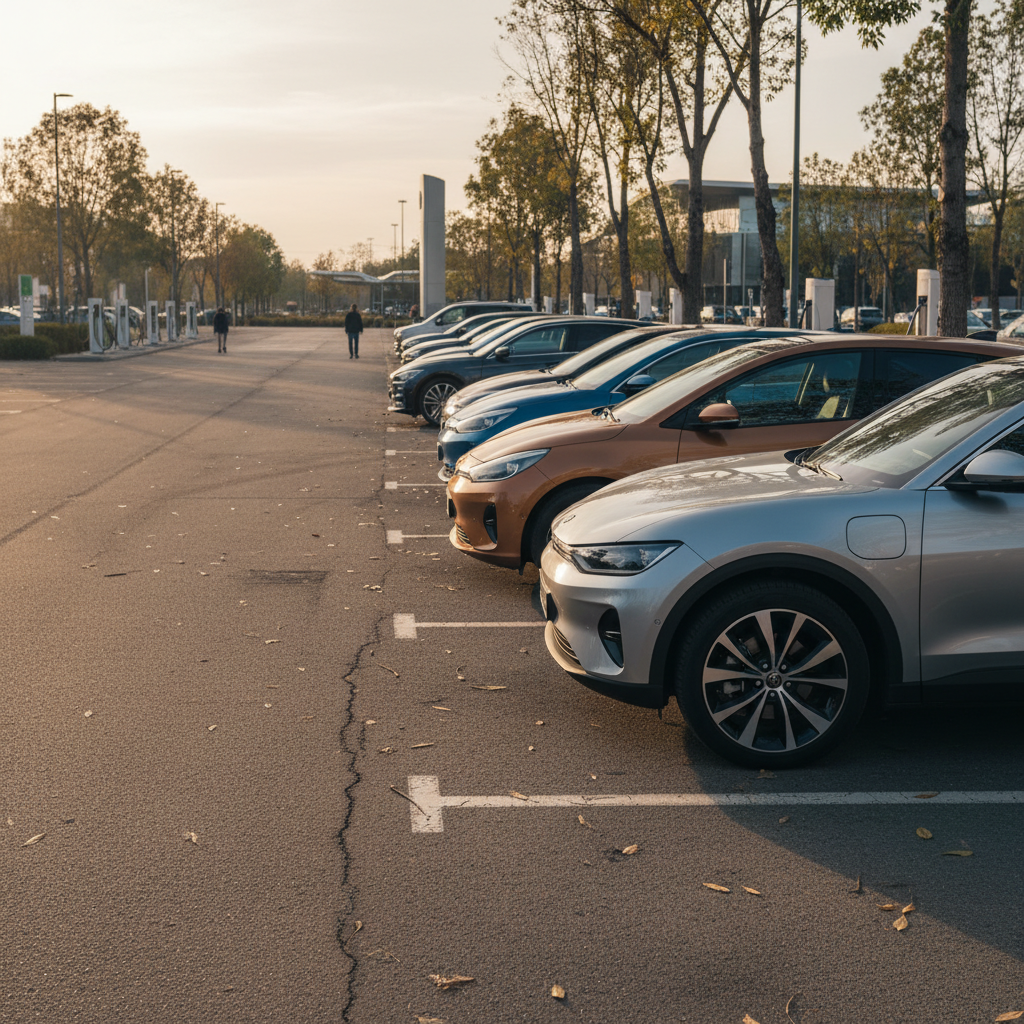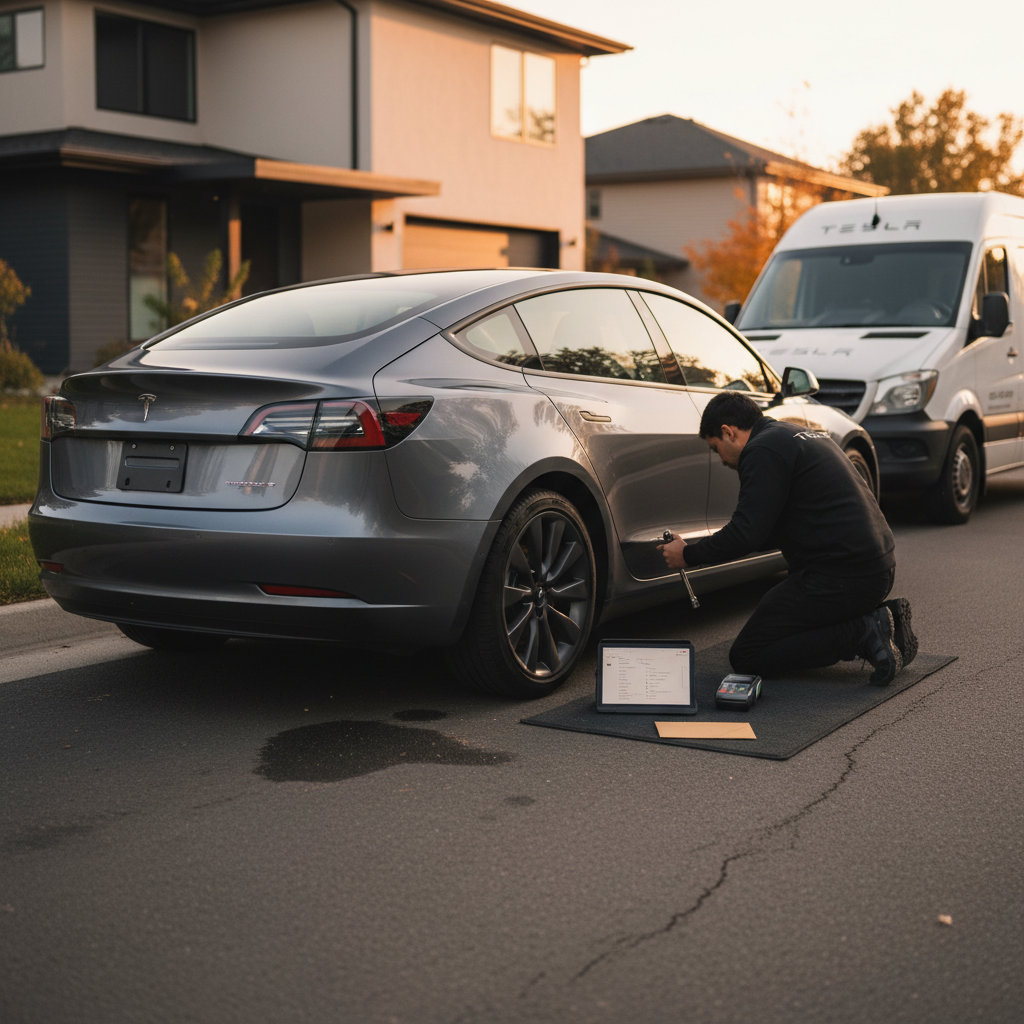If you’re looking for an EV under 30k in 2025, you’re in a sweet spot. Sticker prices on some new models are finally dropping again, and the used EV market is packed with cars that cost far less than they did just a few years ago. The trick is knowing which models are smart buys, and which to avoid.
The short version
Why an EV Under $30K Makes Sense in 2025
New EV prices spiked in 2022–2023, but by late 2025 the market has cooled. Lease returns, early adopters trading up, and aggressive price cuts have pushed many strong electric cars into the sub‑$30,000 range. At the same time, several automakers are repositioning the Leaf, Bolt, and other compact EVs as value leaders.
Why Budget EVs Are Suddenly Interesting
Tip for gas‑switchers
What $30,000 Really Buys You in an EV Today
New EV under $30K
- Mostly compact hatchbacks and crossovers (think Nissan Leaf and upcoming Chevy Bolt relaunch).
- Range in the 220–300 mile ballpark on newer designs.
- Latest tech and safety features, plus full factory warranty.
- Limited choice today, but improving with each new model year.
Used EV under $30K
- Far more choice: Tesla Model 3 and Y, Hyundai Ioniq 5, Kia EV6, Mustang Mach‑E, and more, depending on year and mileage.
- Often longer range and faster charging than new budget EVs.
- Some remaining battery warranty, but you must verify.
- Best overall value if you shop carefully and inspect battery health.
Beware of too‑good‑to‑be‑true deals
Best New EVs Under $30K (or Very Close)
The honest truth: in late 2025, there still aren’t many brand‑new EVs comfortably under $30,000 before taxes and fees. But a few models are designed to hit that threshold, or get very close, especially if you negotiate or find dealer discounts.
Notable New EVs Around the $30K Mark
Exact pricing changes often, but these are the nameplates to watch if you want a new EV on a tight budget.
2026 Nissan Leaf
The redesigned 2026 Nissan Leaf is positioned as the most affordable new EV in the U.S., with a starting price announced just under $30,000 and over 300 miles of range plus a NACS fast‑charge port.
It’s no longer just a city commuter, this version finally has the range to be a family’s primary car.
2027 Chevrolet Bolt (upcoming)
The reborn 2027 Chevy Bolt is slated to start just under $30,000 with around 250 miles of range and much quicker DC fast‑charging than the old model.
If you can wait until deliveries ramp up (expected in 2026), it should be one of the most compelling new EVs near $30K.
Other emerging budget EVs
Models like the BYD Dolphin, Fisker Pear, and other compact imports are being talked about as sub‑$30K entries, though availability and pricing in the U.S. may vary or slip.
Always verify U.S. specs and warranty before counting on them.
New vs. used at this price
Best Used EVs Under $30K Worth Hunting For
Used is where the action is. In 2025, $20,000–$30,000 puts some very capable electric cars on your radar, many with 250–300 miles of range and fast‑charging that makes road trips realistic. Availability and pricing vary by region, but the models below show up frequently in U.S. used listings near or under $30K.

EV Under 30K: Quick Comparison Table
Representative examples of what you might see around $30,000 in the U.S. used market in late 2025. Actual pricing will depend on mileage, condition, and local demand.
| Model | Typical Price Near $30K* | Approx. Range (EPA) | Body Style | Why It’s a Smart Buy Under $30K |
|---|---|---|---|---|
| Tesla Model 3 (RWD, 2021–2023) | $24K–$30K | ~250–270 mi | Sedan | Strong fast‑charging network, good efficiency, great daily driver if you’re okay with a sedan. |
| Tesla Model Y (RWD/Long Range, early builds) | $25K–$30K | ~280–320 mi | Compact SUV | One of the best values if you find a higher‑mileage example priced right and battery checks out. |
| Hyundai Kona Electric (2020–2023) | $20K–$28K | ~250–260 mi | Subcompact SUV | Excellent efficiency, comfortable ride, and useful range in a city‑friendly footprint. |
| Hyundai Ioniq 5 (early years) | $26K–$32K | ~240–300 mi | Compact SUV | 800‑V fast charging, roomy cabin, and modern tech. Some trims are already flirting with sub‑$30K pricing. |
| Kia EV6 (early years) | $24K–$30K | ~250–310 mi | Compact SUV | Sporty feel with very quick DC fast charging and a stylish interior. |
| Ford Mustang Mach‑E (Select/Premium, 2021–2023) | $22K–$28K | ~230–300 mi | Crossover | Plenty of used supply, good range, and a familiar Ford dealership network. |
| Nissan Leaf (Plus and 2026 redesign) | $16K–$30K | ~215–303 mi | Compact hatch/CUV | Older Leafs can be city bargains; the 2026 redesign offers much more range while staying value‑focused. |
| Chevy Bolt EV/Bolt EUV (prior gen) | $15K–$24K | ~247–259 mi | Compact hatch/SUV‑ish | Great range for the money and low running costs; just check recall history and battery replacements. |
Always confirm current pricing in your area and verify battery condition before you buy.
A note about prices
Battery Health: The Single Most Important Factor
When you’re buying an EV under 30k, the most expensive component, the battery, is already part‑worn. Unlike a gas engine, you can’t listen for knocks and rattles to judge its health. You need data.
Battery‑Health Checks You Should Always Do
1. Get a real battery health report
Ask for a documented battery diagnostic, not just a quick scan. At Recharged, every EV comes with a <strong>Recharged Score Report</strong> that quantifies battery health, so you know what you’re buying.
2. Compare current range to original EPA rating
Look up the model’s original EPA range and compare it to real‑world range at high state of charge. A modest drop is normal; a huge gap may signal issues or heavy fast‑charging use.
3. Review fast‑charging history
Frequent DC fast charging isn’t automatically bad, but an older pack that’s been fast‑charged hard and often may have more degradation. Ask for service records where possible.
4. Check remaining battery warranty
Many EVs came with 8‑year/100,000‑mile (or better) battery warranties. If the car’s only 4–5 years old, you may still have meaningful coverage left.
5. Test drive and charge
On a test drive, watch how quickly range drops and, if possible, plug into a Level 3 charger to see if the car reaches expected charging speeds without errors.
How Recharged helps
How to Shop Smart for an EV Under $30K
You don’t have to be an engineer, or a gambler, to buy a budget EV confidently. A simple process and the right questions will do a lot of the heavy lifting for you.
Smart‑Shopping Playbook
Follow this sequence and you’ll avoid 90% of common EV‑buyer mistakes.
Define your real needs
- Daily miles: How far do you actually drive most days?
- Charging access: Home, work, or public only?
- Space: Do you need an SUV, or is a hatchback fine?
- Weather: Very cold climates favor cars with heat pumps and decent fast‑charging.
Shortlist the right models
Based on your answers, build a short list from the table above. For example:
- City + home charging → Leaf, Bolt, Mini‑sized EVs.
- Family + road trips → Model Y, Ioniq 5, EV6, Mach‑E.
Inspect history and condition
- Ask for the vehicle history report (accidents, ownership, mileage).
- Look for recalls and software updates being completed.
- Check for uneven tire wear or suspension damage, common on heavier EVs.
- On Recharged, this due‑diligence is baked into the process; you can also get live help from EV specialists.
Leverage expert tools
- Use an EV‑focused marketplace like Recharged to see battery scores and fair‑market pricing in one place.
- Schedule a virtual walk‑through or visit the Richmond, VA Experience Center if you want to see a car in person.
- If you’re trading in a gas car or another EV, compare instant offers vs. consignment to see which nets you more money.
Stretch your $30K further
Financing & Total Cost: Why Payments Beat Sticker Price
Most shoppers don’t write a $30,000 check, they make a monthly payment. That’s where EVs under $30K can really shine, because your fuel and maintenance savings help offset the payment every single month.
What an EV Under $30K Can Cost to Own
Look beyond the sticker
A $31,000 EV with a healthier battery and lower miles might cost less to live with than a $28,000 example that’s been ridden hard. Focus on:
- Total monthly cost (payment + insurance + electricity).
- Battery health and remaining warranty.
- How long you plan to keep the car.
Use EV‑friendly financing
With Recharged you can:
- Pre‑qualify online with no impact to your credit score.
- See payment estimates tailored to your budget.
- Roll your trade‑in or instant‑offer value into the deal.
- Handle everything digitally, from selecting the car to arranging nationwide delivery.
Fast path to the right EV
FAQ: EVs Under $30K
Frequently Asked Questions About EVs Under $30K
Bottom Line: Is an EV Under $30K Right for You?
A well‑chosen EV under 30k can easily cover your daily driving, slash your fuel and maintenance spending, and still feel like a genuine upgrade from your gas car. The key is to focus on the fundamentals: the right range for your life, a battery you can trust, and a total monthly cost that fits comfortably in your budget.
If you want help making those trade‑offs, that’s exactly what Recharged was built for. Every car on the platform comes with a Recharged Score Report so you can see verified battery health, plus transparent pricing, EV‑specialist guidance, financing, trade‑in options, and even nationwide delivery. Start with your budget, get pre‑qualified, and then let the data, and a little expert hand‑holding, guide you to the right EV under $30K.



